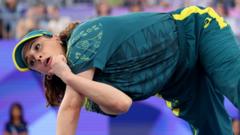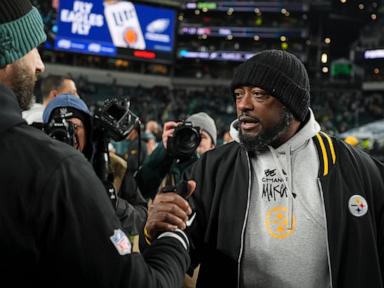A famous CEO is often bad for business

Elon Musk just became the first person to be worth over $400 billion, a staggering figure that puts him in a league of his own. But in other ways, Musk is part of a growing class of executives whose larger-than-life personalities have made them household names. The internet, social media and 24-hour news have given CEOs more opportunities for public visibility than ever before.
While the spotlight may have its appeal for the CEO — and some end up being great leaders — it’s not always good for business. My research suggests that celebrity CEOs drag down profits by repeating the strategies that made them famous even when times change. However, CEO fame can sometimes have benefits when deployed strategically.
Celebrity CEOs often get stuck in the roles that made them famous — the rebel who goes against the grain or the savior who swoops in and saves failing companies. They tend to over-rely on strategies that brought them renown, even when these approaches no longer make sense.
Albert “Chainsaw Al” Dunlap became famous in the 1990s for extreme cost-cutting and downsizing that turned around companies like Scott Paper. But when he took over at Sunbeam, Dunlap’s aggressive actions nearly destroyed the company, and ultimately led to his own downfall.
While any leader can struggle to adapt, the praise heaped on celebrity CEOs for their previous successes can create major blind spots. On the heels of the iPhone’s launch in 2007, BlackBerry CEO Mike Lazaridis resisted a switch to touchscreens and insisted that his products keep their distinctive keyboards. The company quickly became a dinosaur because its CEO was unwilling to evolve beyond what had made him famous.
To keep celebrity CEOs in check, companies need other adults in the room with the insight and confidence to push back. Research from myself and other scholars on leadership and authority suggests that people are likely to defer to famous CEOs. Yet the more well-known the executive, the morethey need oversight, because of their tendency to become overconfident.
Strong lieutenants, split leadership and independent boards can help. Think Charlie Munger, Warren Buffett’s trusted partner at Berkshire Hathaway, or the collaborative leadership of Google co-founders Larry Page and Sergey Brin and former CEO Eric Schmidt, all of whom shared the spotlight.
Board oversight is also important. Dennis Kozlowski, the former CEO of Tyco International, later convicted of financial crimes, had a historically bad board at Tyco in the early 2000s that offered a rubber stamp and almost no supervision. Contrast that to Disney and Nike, where Bob Iger and Phil Knight each partnered with their boards to significantly grow the businesses.
When the CEO becomes more famous than the product itself, celebrity can deflect attention away from problems with the underlying business. Musk waxes about the future of transportation while the Tesla Cybertruck faces performance problems, or lauds brain-computer interfaces that revolutionize communication even as his social media site X loses users because of hate on the platform. Adam Neumann of WeWork pitched grand visions of the high-tech office of the future while his company piled on debt.
Executives who receive attention often crave more of it, leading them to double down on aggressive claims to nurture their fame. In the worst cases, like Elizabeth Holmes at Theranos and Sam Bankman-Fried at FTX, media attention and accolades cover up fraud and misdeeds.
CEO fame works best when it is a vehicle for boosting a stellar product, not an end in itself. Tony Hsieh became well-known for leading Zappos, even publishing a bestseller about entrepreneurship. But this attention was built around, and kept the focus on, Zappos’s unique work culture and stellar customer service.
Attention can be particularly valuable for struggling companies that want to stand out, or young consumer-facing industries trying to shape public perceptions. It may be less helpful for well-established brands, B2B businesses or industries like oil and gas where media attention is counterproductive.
And attention should fit the brand. Former T-Mobile CEO John Legere’s rock-and-roll T-shirts, Sunday crockpot recipes and persona in the company’s commercials gave the brand an edgy vibe. This made sense when T-Mobile was positioning itself as the underdog alternative, but might have felt contrived for the CEO of industry leaders Verizon and AT&T.
Celebrity CEOs can act as messengers not just for their companies, but for nascent industries. OpenAI leader Sam Altman has become the face of generative AI, publicly addressing concerns, weighing in on regulations and trying to secure public trust in the new technology — sometimes successfully, and sometimes not.
The best CEOs are often relatively unknown outside their industry — Reuben Mark at Colgate, Bob Ulrich at Target, Dan Bane at Trader Joe’s. These leaders make a name for their company without making a name for themselves among the public.
As boards select and oversee CEOs, they should carefully weigh the pros and cons of fame. CEO celebrity is most valuable when it is in service of the business, boosting a great product and aligning with company needs, and when the CEO is held accountable and pushed to evolve. While fame can be alluring, ultimately the CEO shouldn’t outshine the business itself.
Jonathan Bundy is professor of management and entrepreneurship at Arizona State University’s W.P. Carey School of Business.
-

Quiz of the Year, Part 3: Which dance moves made Raygun famous?
Test your memory of 2024 in our four-part Christmas quiz. What happened in June, August and September?BBC News - 5h -

'Morrison Hotel' made famous by The Doors goes up in flames in LA
The former Morrison Hotel, which was famously on the cover of a 1970 album by The Doors, has been significantly damaged by a fire in downtown Los AngelesABC News - 8h -
2024 Was a Bad Year for the World's Autocrats
Regimes fell in Syria and Bangladesh, marking unexpected defeats against a rising tide of authoritarianism in the world.The Wall Street Journal - 2d -

The President-Elect Comments Often on the Men Around Him
“These guys are specimens.”The New York Times - 13h -

On Football: Nick Sirianni's success is often overshadowed by self-inflicted distractions
Nick Sirianni has the highest winning percentage among active NFL coaches and the fifth-best in league historyABC News - 18h -

How to shop a humidifier — plus how often you should clean it
Find the best humidifiers to relieve allergies and dry skin. Shop humidifiers from brands like Honeywell, Levoit, Vicks and more.NBC News - 3d -
Review: As the boss of 'Babygirl,' Nicole Kidman does a bad, bad thing
Written and directed by Halina Reijn, this age-gap office romance tests if we're mature enough for a thorny conversation about sex and power.Los Angeles Times - 3d -

Why Mergers of Carmakers Like Honda and Nissan Often Falter
The Japanese companies are considering joining forces to survive in a rapidly changing auto industry, but auto history is filled with troubled and failed marriages.The New York Times - 4d -
Burt, the famous croc from "Crocodile Dundee" movie, dies in Australia
Burt, the iconic Saltwater crocodile that appeared alongside Paul Hogan and Linda Kozlowski in the hit movie, was believed to be more than 90 years old.CBS News - 4d
More from The Hill
-

American Marc Fogel formally classified as wrongfully detained in Russia
The Hill - 3h -

Texas blocks Biden from disposing of border wall materials before Trump takes office
The Hill - 4h -

Most Americans partly blame high insurance profits for UnitedHealthcare CEO killing: Poll
The Hill - 5h -

Greg Gumbel, sports broadcast legend, dies at 78 after cancer battle
The Hill - 5h -

Leon Panetta suggests it's 'pretty clear' Russia 'responsible' for Azerbaijan Airlines plane crash
The Hill - 6h